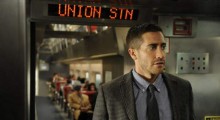Jaron Lanier
-
Human Experience is the New Fossil Fuel: Jeff Orlowski on His Big Tech Critique, The Social Dilemma

From Arab Spring uprisings to Russian disinformation campaigns, social media platforms have swung from heralded saviors to all-purpose bogeymen with breakneck speed. So how did we get here? And can online life even be fixed? Was it all the inevitable result of a worldwide collective bargain with the Big Tech devil? (Nothing in life is free, and that goes double in Silicon Valley.) With Jeff Orlowski’s The Social Dilemma, which premiered at Sundance — as did the director’s 2017 doc Chasing Coral and 2012’s Chasing Ice — these consequential questions and more get addressed through a most unusual format. The […]
by Lauren Wissot on Sep 9, 2020 -
WHAT’S IN MY INSTAPAPER: SUNDAY MORNING LINKS, 12/4/11
I haven’t done one of these in a while — a roundup of a few things I’ve stored in my Instapaper for weekend readings. As the year goes on, Melancholia is emerging as my favorite film of 2011. Part of the reason, I think, is that the discourse about it is becoming more and more interesting. Whereas Von Trier’s Cannes comments dominated the dialogue following its opening, now not just critics but viewers are grappling with the film’s meanings. From the Occupied Territories Tumblr comes “Depression, Melancholia, and Me: Lars Von Trier’s Politics of Displeasure,” an extraordinary essay in which […]
by Scott Macaulay on Dec 4, 2011 -
Director Tiffany Shlain on Connected
“Some films go deep,” filmmaker Tiffany Shlain said at the Sundance premiere of her documentary, Connected. “Mine goes wide.” Indeed, Shlain’s film does go wide — it’s like a rubber band stretching in multiple directions while not breaking. Examining the ways in which technology can productively unite our global citizenry, Connected details nothing less than the history of consciousness and its arrival within today’s always-on, hyper-wired mind. Through voiceover narration and breezy montage, Connected explores the right brain/left brain split and its effect on social and economic organization, and it highlights the transformative potential of today’s communication tools. As a […]
by Scott Macaulay on Oct 16, 2011 -
Human, All Too Human

[Editor’s Note: Spoiler Alert – The ending of Source Code is mentioned in this piece.] “We have only to understand the mirror stage as an identification, in the full sense that analysis gives to the term: namely, the transformation that takes place in the subject when he assumes an image — whose predestination to this phase-effect is sufficiently indicated by the use, in analytic theory, of the ancient term imago. This jubilant assumption of his specular image by the child at the infant stage, still sunk in his motor incapacity and nursling dependence, would seem to exhibit in an exemplary […]
by Zachary Wigon on Apr 7, 2011 -
Thoughts On Amazon Studios
As most of you know, I write a weekly newsletter that contains a letter that’s not usually posted on this blog. Sometimes it consists of thoughts that coalesce into an article or blog post down the line, and sometimes it consists of of-the-moment reactions to events just hitting the news. Often the newsletter poses questions that I’d like our readers to comment on. Yesterday I wrote about the newly announced Amazon Studios and solicited feedback. I hope to, in the next few days, write about the provocative new venture, which has good elements (a new financing source for independent filmmakers […]
by Scott Macaulay on Nov 19, 2010
